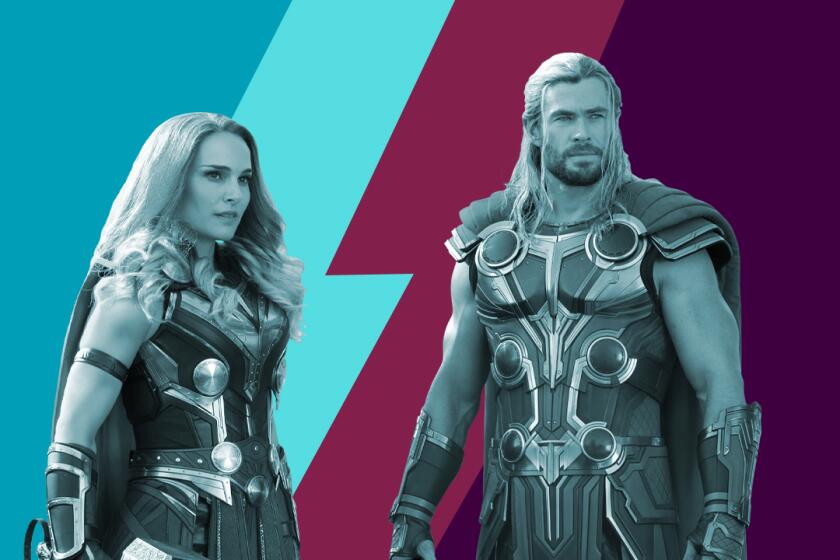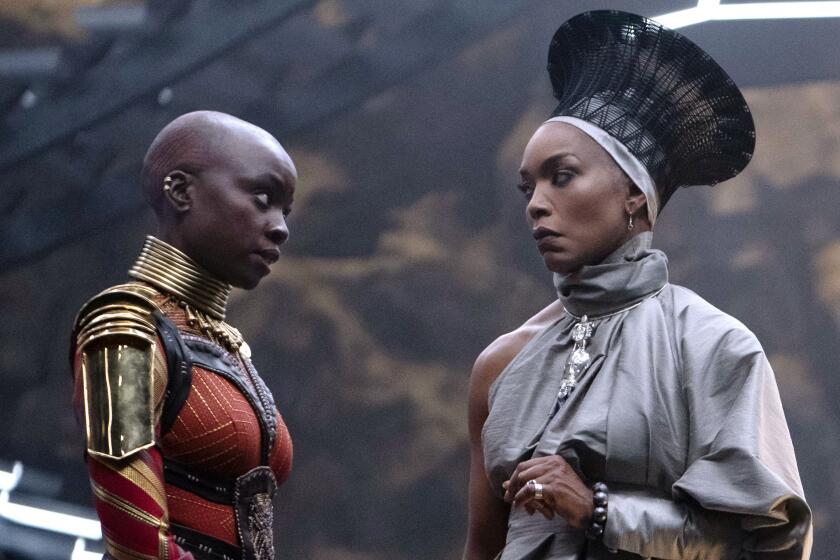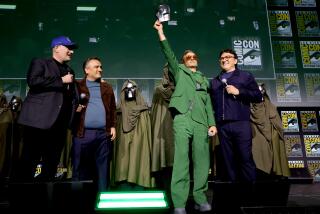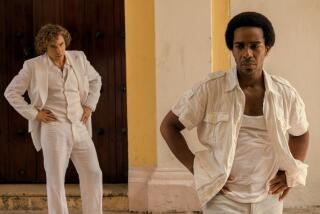How âWakanda Foreverâ producer Nate Moore pushed for Black heroes in the MCU
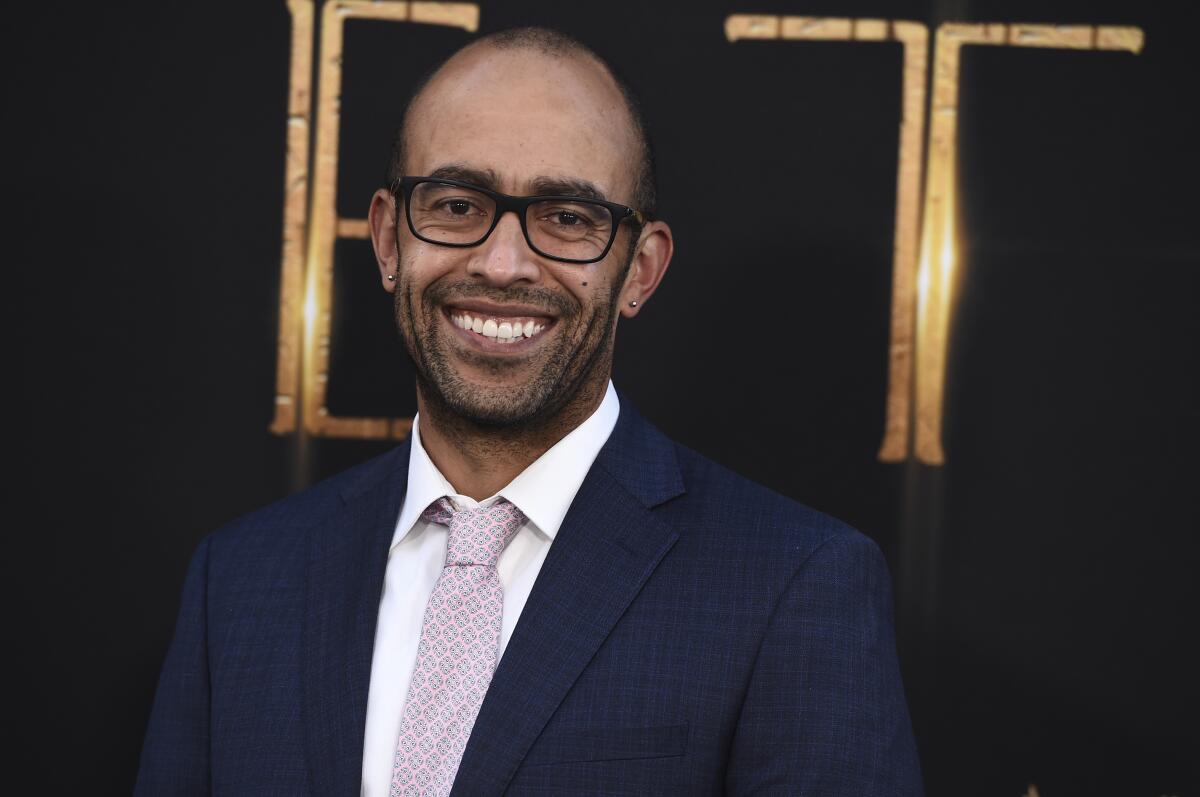
Growing up in Clovis, Calif., near Fresno, young Nate Moore and his siblings occupied themselves with movies, video games, sports, books and â crucially â comics.
Every month or so, Moore and his older brother would walk three miles to a local comic book store and rummage through the 25-cent bin. When he got a little older, he absorbed obscure superhero lore by digging through the character bios of a Marvel role playing game he found at a B. Dalton bookseller.
Those idle hours provided the early education that would prepare him for his current role.
As a producer and executive at Walt Disney Co.âs Marvel Studios, Moore has played an instrumental role in some of the most successful superhero movies and series of the last decade, including âCaptain America: Civil War,â âBlack Pantherâ and Disney+âs âFalcon and the Winter Soldier.â His latest is âBlack Panther: Wakanda Forever,â in theaters Friday, on which he shares full producer credit with Marvel Studios President Kevin Feige.
Moore, a 12-year veteran of the studio, plays a key part in Marvelâs increasingly daunting interconnected web of continuity among dozens of feature films and a growing slate of TV shows for streaming.
For Moore, 44, thatâs the fun part.
âItâs playing a little bit with my Marvel role-playing game, and going, âWhoâs in this scene now?ââ Moore said over Zoom last week.
Inside the business of entertainment
The Wide Shot brings you news, analysis and insights on everything from streaming wars to production â and what it all means for the future.
You may occasionally receive promotional content from the Los Angeles Times.
Though heâs not a household name like Feige, Moore â as one of the few prominent Black film studio executives in Hollywood â has had a major influence on the inclusiveness of the Marvel Cinematic Universe.
âWakanda Foreverâ director Ryan Coogler credited Moore with pushing for the introduction of more Black characters, including Falcon (a.k.a. Sam Wilson, played by Anthony Mackie) and Black Panther (a.k.a. TâChalla), in the film franchise.
âHeâs a comic book fan. Heâs also a Black man, and I think he felt a responsibility once he got to Marvel to shepherd these specific characters â Falcon and Panther â into the MCU,â Coogler said. âHeâs very candid and has great creative instincts... heâs always happy to state his opinion, however unpopular it may be, which I find incredibly satisfying, because I like to know where my collaborators stand.â
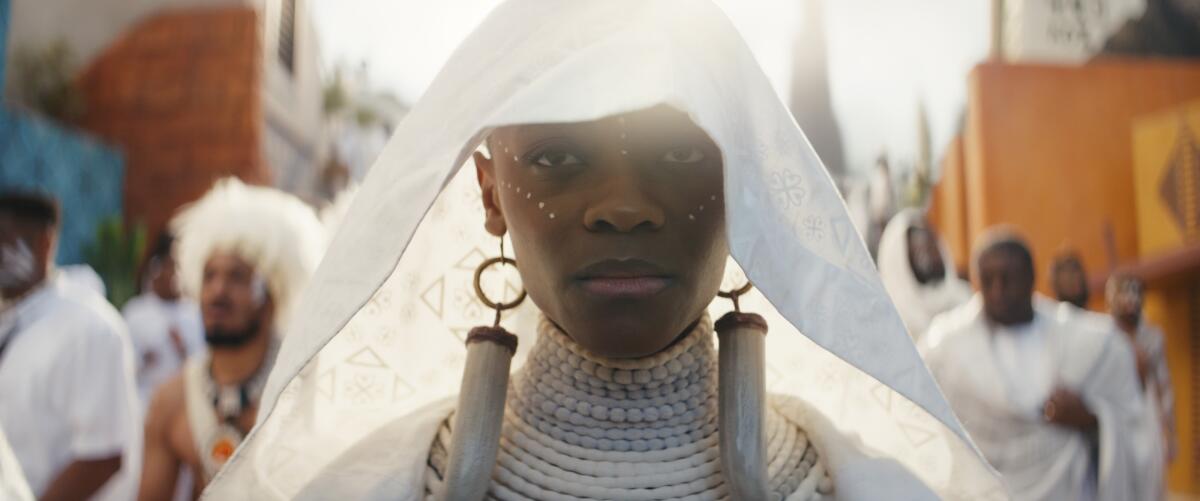
It doesnât do it justice to describe the sequel to 2018âs âBlack Pantherâ â a landmark for Black representation in Hollywood that scored $1.34 billion in box office sales and a best picture Oscar nomination â as highly anticipated.
The new film, which cost an estimated $250 million to make, has to do much more than hit box office targets, doubling as an emotional tribute to Marvel Studiosâ original Black Panther, Chadwick Boseman, who unexpectedly died of colon cancer in August 2020 when âWakanda Foreverâ was in preproduction.
Additionally, âWakanda Foreverâ must tell an entertaining and epic superhero story. And it sets up a new character for an upcoming Disney+ show (âIronheartâ). Disney has also announced that Coogler is working on a streaming series set in the world of Wakanda. By introducing the villain Namor (played by Tenoch Huerta) and basing the underwater nation of Talokan on Mayan iconography and culture, the film seeks to bring Latino and Indigenous representation to the MCU.
âWakanda Foreverâsâ Tenoch Huerta opens up about racism and colorism in Latin America â and the âcrazy heartfeltâ speech he gave to win over the crew.
Those factors saddle the two-hour-and-41-minute movie with by far the heaviest burden of any picture in Marvelâs Phase Four, which has been a transitional period for the MCU as it moves on from some of its most beloved characters (Robert Downey Jr. as Iron Man) while elevating old favorites (Mackieâs character taking the Captain America mantle) and introducing new ones (such as Riri Williams, played in âWakanda Foreverâ by Dominique Thorne). In âWakanda Forever,â though, itâs the emotional beats and moments of closure, anchored by the performances of Angela Bassett and Letitia Wright, that resonate most.
âI look at it as a phase thatâs about loss and renewal,â Moore said. âItâs about people having to lose in order to change, which is something that I feel personally. The world is kind of at this place of coming out of COVID and trying to deal with the aftermath of that. And I think a lot of our filmmakers and our storytellers are just tapping into what theyâre feeling around them. But the takeaway, hopefully, if there is one, is that the renewal is the important part.â
âWakanda Foreverâ generated $180 million in ticket sales in the U.S. and Canada, breaking the domestic opening weekend record for the month of November, easily surpassing 2013âs âThe Hunger Games: Catching Fireâ ($158.1 million). Internationally, âBlack Panther: Wakanda Foreverâ garnered $150 million, for a global cumulative of $330 million.
The sequel arrives at a time when Marvel, the entertainment industryâs most valuable intellectual property, has sometimes become a victim of its own success.
Perceived stumbles, including the tepidly reviewed âEternals,â have opened the door for critics to question the health of the franchise. But while some of the recent movies have left fans divided, the studio has remained a financial juggernaut, with âDoctor Strange in the Multiverse of Madnessâ grossing $956 million in ticket sales and âThor: Love and Thunderâ taking in more than $760 million.
âThor: Love and Thunderâ had a bigger second-weekend drop than many other Marvel movies. What does it mean for the franchise?
âI liken it to a sports franchise after winning a world championship,â said Shawn Robbins, senior analyst at Box Office Pro. âThat was âInfinity Warâ and âEndgame.â That was a year of peak Marvel. How could you possibly top that anytime soon? Now you have to rebuild, and thatâs where theyâre at.â
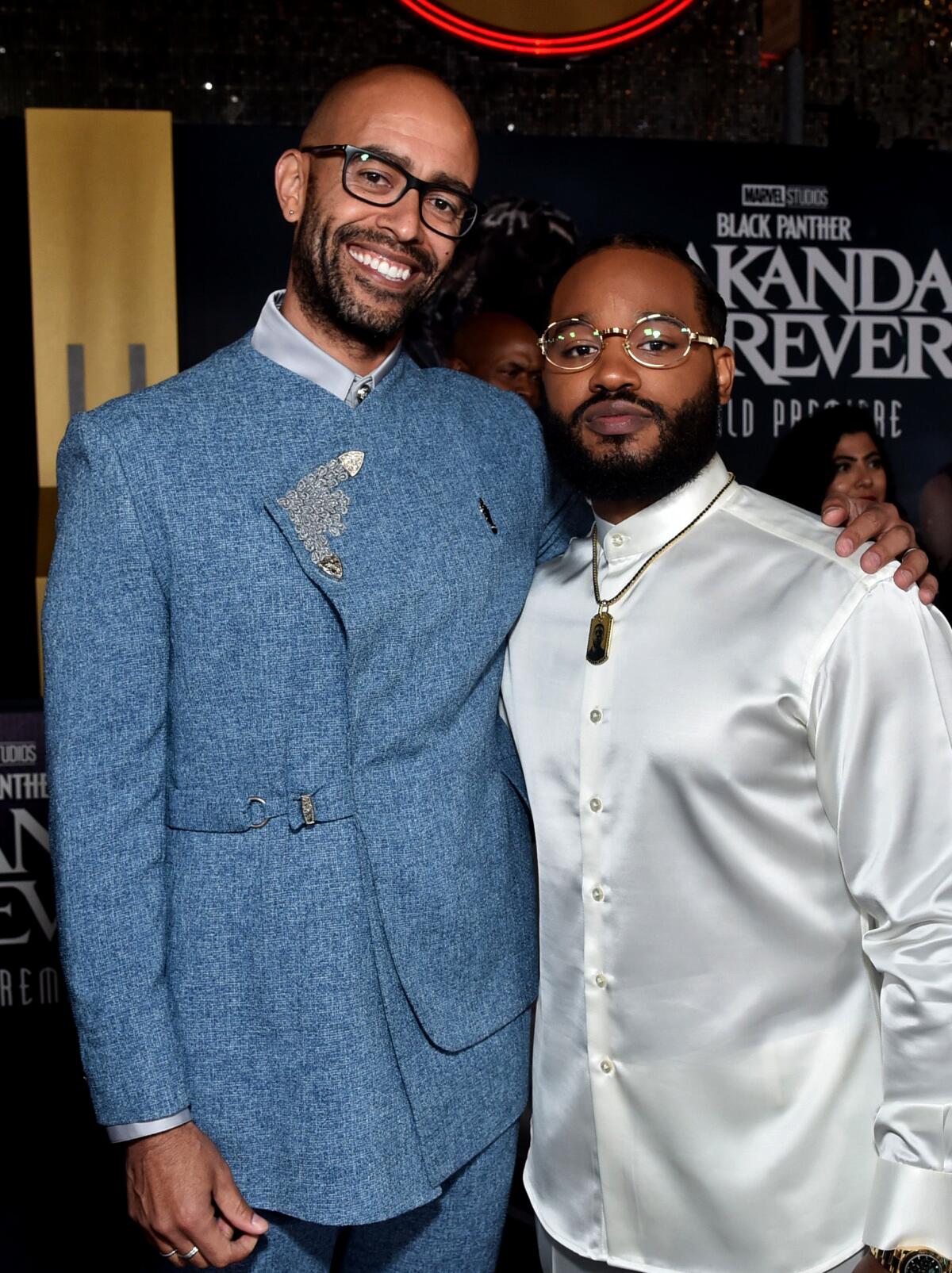
âWakanda Foreverâ has attracted mostly positive reviews, with a 85% fresh score on Rotten Tomatoes as of Thursday, though notices are generally not as effusive as those for the first âBlack Panther.â The film is expected to open with $170 million to $200 million in domestic box office sales, which would make it one of the biggest movies of the year.
âNate has championed this character since his early days at Marvel Studios, and part of the reason the Black Panther storyline has been so powerful is because of the care and thought heâs put into it,â Feige said. âHe is a talented storyteller with fantastic instincts, and heâs also a perceptive and compassionate person who showed up for our filmmakers and cast on this film in a way that goes far beyond the expectations of any producer.â
Letitia Wright, Angela Bassett, Danai Gurira and Lupita Nyongâo return to Wakanda without the late Chadwick Boseman in Ryan Cooglerâs stirring follow-up to âBlack Panther.â
Itâs the latest career milestone for Moore, who in high school entertained the idea of becoming a director. His favorite film was âThe Goonies,â which he related to as a bored kid in Clovis hanging out with his three siblings.
Moore, who lives in Encino with his wife and two daughters, made his way to the MCU despite being rejected by UCLAâs film program in his sophomore year. He majored in communications instead, getting his film education through other channels.
Through a connection with someone on the board of one of his scholarships, he landed an unpaid internship in development at Columbia Pictures, which led to a job after he graduated. After backpacking through Europe and Australia, he secured a job as a production assistant on Sam Raimiâs âSpider-Man 2.â He later worked on the indie film âThe Dying Gaul,â a tiny 16-day shoot in Los Angeles.
During his early career â including stints at Jeff Skollâs Participant Media and the independent production and film finance company Exclusive Media â he didnât have Black executives to mentor him. There just werenât many around.
âI grew up in a town without a lot of Black people, so it wasnât new for me,â he said.
Eventually, Moore was looking for his next move and he found out that Marvel was hiring through a friend at talent agency ICM. He called someone he happened to know at the studio, whom heâd met only once, and that person got his resume in front of Feige. His experience on âSpider-Man 2â earned him an interview, and he joined in March 2010, when the company was in post-production on âIron Man 2.â
Moore ran the companyâs writers workshop, where he worked with Nicole Perlman to fine-tune the script for âGuardians of the Galaxy.â Feige then assigned Moore to the second âCaptain Americaâ movie, which didnât have a story yet. Seeing an opportunity, Moore pitched the screenwriters the idea of bringing in Falcon, a longtime counterpart of Steve Rogers in the comics. âThey were like, âThe guy with the wings?ââ Moore said.
âCaptain America: The Winter Soldierâ hit big ($714 million in box office), so the studio wanted to get more ambitious with the patriotic heroâs next installment. Feige was eager to adapt the sprawling âCivil Warâ storyline from the comics, presenting a challenge because Marvel Studios didnât have the rights to many of the characters in that saga.
For Black folks, the original âBlack Pantherâ was never just a blockbuster, and the second installment has even more layers.
The studio knew the story would center on the conflict between Captain America and Iron Man, but Moore wanted there to be a third pillar.
He remembered Black Panther from the comics of his childhood, how the character stood apart from Marvelâs brightly colored palette because of his stark black outfit, his lone wolf demeanor and his connection to his homeland. He texted the idea to Feige, who quickly agreed. They hired Boseman while he was promoting the James Brown biopic âGet on Up.â But would Black Panther stand out in a movie with a multitude of established characters, including Ant-Man and (through a deal with Sony Pictures) Spider-Man? Yes, it turned out.
âThere was a little bit of fear of Black Panther getting lost in the mix of all of that, but even in test screenings he was often the most popular character,â Moore said.
Even so, 2018âs âBlack Pantherâ was a gamble â the first Marvel movie with a nearly all-Black cast and a largely Black crew.
Its success obliterated antiquated industry assumptions about whether a Black-centered blockbuster would work internationally, including China. It scored seven Oscar nominations, winning three, for original score, costume design and production design. Its best picture nomination was a first for Marvel. A sequel was put into development, with Coogler and the bulk of the original cast and key craftspeople returning.
âWakanda Foreverâsâ Tenoch Huerta opens up about racism and colorism in Latin America â and the âcrazy heartfeltâ speech he gave to win over the crew.
But Bosemanâs sudden death forced Coogler and the team to regroup. The filmmakers, including Coogler and Moore, had to first process the personal loss of a friend and collaborator. And then they had to figure out how to move forward. There was even a question of whether continuing to work on the sequel was the right thing to do.
Recasting the role was never seriously considered, Moore said. Boseman had shaped much of the character that ended up on film. He was the reason the onscreen TâChalla had an African accent and was educated in Wakanda, rather than at Oxford, as he was in the comics. Replacing him felt both wrong and impossible.
Moore said there was no pressure from Disney to complete the film. But having spoken with Bosemanâs family, the filmmakers reworked the script, keeping the conflict between Wakanda and Talokan, and their divergent views on the outside world, but turning the story of loss and renewal into the emotional core of the movie. The cultural resonance of the first âBlack Pantherâ was a major reason for them to go ahead, despite the monumental challenges.
âFrom my perspective, it didnât seem like Chad would have said, âHey, you shouldnât make any more of these,ââ Moore said. âIt seems like he would say, âRemember those kids and what it meant to them? They want to go back to Wakanda, so figure it out, guys.ââ
More to Read
Inside the business of entertainment
The Wide Shot brings you news, analysis and insights on everything from streaming wars to production â and what it all means for the future.
You may occasionally receive promotional content from the Los Angeles Times.

